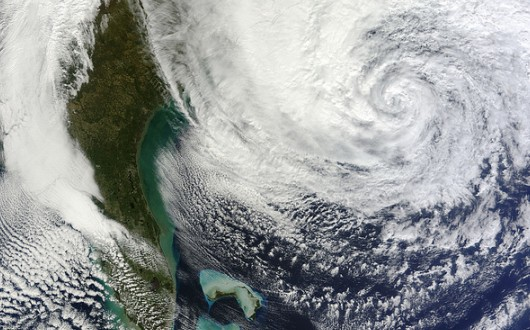Friday, December 23, 2011 by: Tara Green
 (NaturalNews) The coming new year which is 2012, also happens to be the name of a 2009 Hollywood disaster film in which a lucky few survivors, mostly political leaders and the very rich, board huge insulated arks to ride out a massive civilization-destroying tsunami. As the real 2012 approaches, pop culture speculation continues to fashion an apocalypse-almost-now out of misinterpretation of the Mayan calendar.
(NaturalNews) The coming new year which is 2012, also happens to be the name of a 2009 Hollywood disaster film in which a lucky few survivors, mostly political leaders and the very rich, board huge insulated arks to ride out a massive civilization-destroying tsunami. As the real 2012 approaches, pop culture speculation continues to fashion an apocalypse-almost-now out of misinterpretation of the Mayan calendar.For those of us less prone to anxiety, perhaps 2012 offers an opportunity to begin a new era– which is actually what the Mayan calendar predicts. We can act to make our own lives and the lives of others in our community healthier and happier. We can act to ensure that politicians and the wealthy lose the insulation which permits them to ride an ark of selfish indifference, ignoring the problems created by corporations plundering both human and environmental resources.
Misinterpreting the Mayan Calendar
Our calendar measures time in terms of years, decades and centuries. The basic unit of the ancient Mayan calendar was the 360-day tun, which, like our own 365-day years, is roughly equivalent to one revolution of the earth around the sun. Twenty tuns form a k’atun and twenty k’atuns (or 400 tuns) become a bak’tun. In our calendar, a bak’tun equals roughly 395 years. The ancient Mayan Long Count calendar covers a period of 13 bak’tuns, which will end approximately around the winter solstice of 2012. In Mayan cosmology, an earlier era preceding their calendar lasted for 13 bak’tuns and ended through natural transition rather than through devastation and destruction. They did not predict the end of the world with the passage of 13 bak’tuns, but a turning of an era, similar to our calendar shift from 1999 to 2000.
Is it Doomsday again?
The Mayan calendar and 2012 form the latest hook upon which some people want to hang their doomsday forebodings. Some of the previous occasions are within recent memory. End of the world predictions occur with regularity. Twice in 2011, 90-year old evangelical minister Harold Camping predicted the end of the world based on his own mathematical calculations, first on May 21 then on October 21. Nearly thirty years ago, Pat Robertson told his millions of television viewers that the Second Coming would take place 1982.
Doomsday predictions are not a recent phenomenon. In 1843, a preacher from upstate New York, William Miller, persuaded over 50,000 followers that Christ would return, bringing the end of the world in 1843. Like Harold Camping, Miller had to revise his prediction, with his followers awaiting a re-scheduled end of the world in 1844, leading to what history books term the Great Disappointment. A massive volcanic explosion in Iceland in 1783 covered much of Europe in poisonous clouds causing crop failure and starvation. The natural disaster and subsequent tragedy led some observers of the day to predict the imminent end of the world. Many Christians in Europe spent the night preceding January 1, 1000 in church praying, awaiting the Last Judgment.
Recycling Doomsday emotions
End-time predictions provide a sense of heightened drama which can help people feel their lives are more imbued with meaning as time ticks down to a purported end. Doomsday scenarios also offer a hope of redressing injustices whether through a Last Judgment or through some brave new world forged by a few survivors. The key point to grasp is the emotions which make doomsday scenarios attractive can be harnessed to create positive change. We all have the choice every day to view our lives with a sense of greater meaning without recourse to “the end is nigh” thinking. We all have the option now to participate in social justice movements, or environmental causes, or efforts to re-create the food and health systems which are slowly poisoning huge numbers of people.
Next time you read or hear a prediction that the world is ending, take some time to think of actions you can take to help re-make the world. Don’t let yourself be frightened by the scope of the problems — give yourself permission to take small steps. But don’t be afraid to think big and to build alliances with other people to make your actions resonate more loudly. If enough people act, 2012 can be the “end of the world” for corporate greed and exploitation of the environment, the middle class, and the poor.
Learn more: http://www.naturalnews.com/034471_2012_end_times_Mayan_calendar.html#ixzz1hMAmQlia


'2012 – end of the world or time for change?' has no comments
Be the first to comment this post!